Georgia elects new president amid rising Western pressure Sovereignty vs. submission
Today, December 14, the Parliament of Georgia concluded the voting process, during which an electoral college elected the country’s sixth president indirectly for the first time. The position was secured by Mikheil Kavelashvili, a member of the ruling Georgian Dream party and a former footballer. However, the United States, the European Union, and the pro-Western opposition have yet to recognize Georgia’s new president. According to their "narrative," Salome Zourabichvili remains the "legitimate president." Georgia continues to face a genuine threat of dual power and civil conflict amidst unprecedented external interference.
In the lead-up to Georgia’s presidential election, Western pressure on the country reached unprecedented levels. It has taken on the form of an undeclared information war and a “soft” intervention, currently being carried out through a “deployment” of European Parliament members to Georgia. The EU and the US have been doing everything in their power to undermine Georgia’s state sovereignty and impose direct external control by installing France-backed Salome Zourabichvili, whom they have declared the “only legitimate authority.”
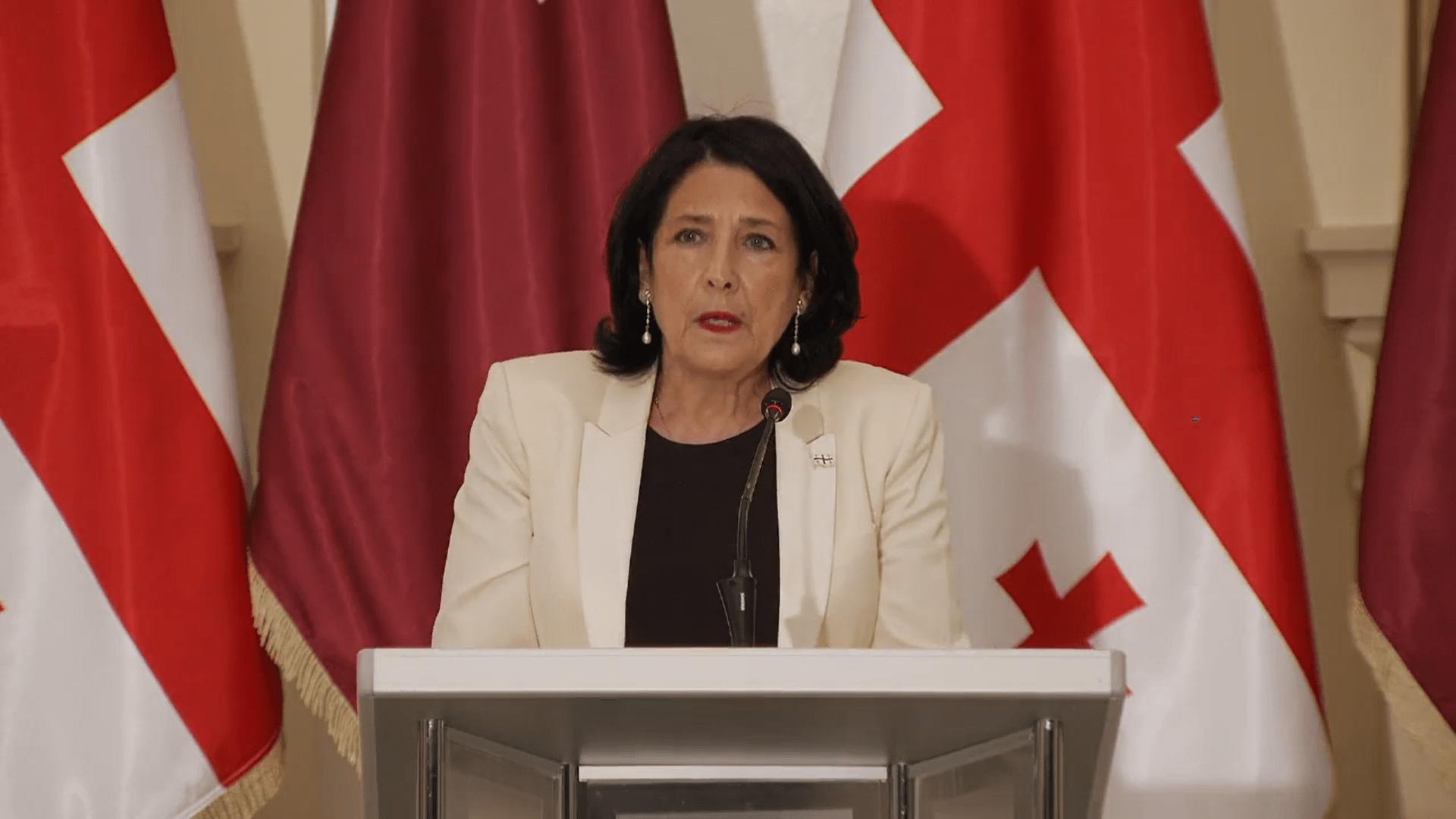
On December 12, the de facto leaders of the protests in Tbilisi were not opposition representatives or activists, but members of the European Parliament, who had specifically traveled to Georgia to incite unrest. Seven members of the European Parliament from different EU countries met with Salome Zourabichvili, opposition party leaders, NGO representatives, and journalists, but they refused to meet with Georgian officials, claiming that they considered them "illegitimate."
Later that evening, the MEPs attended a protest rally on Rustaveli Avenue. During the protest, the participants voiced demands for new sanctions against members of the Georgian government. The posters calling for sanctions were written in English, meaning they were directed not at the Georgian public, but at the "external handlers." It was implied that the "Maidan" was demanding external sanctions against Georgia as a whole. Pro-Western opposition media "joyfully" discussed the possibility of the EU revoking the visa-free regime for Georgian citizens. This, if you will, is the "patriotism" of the pro-Western Georgian opposition.
Pressure on Georgia's authorities is also increasing from the United States. The State Department has imposed visa restrictions on 20 Georgian citizens, including ministers, parliamentarians, law enforcement officers, and security service representatives.
"The United States strongly condemns the Georgian Dream party’s ongoing, brutal, and unjustified violence against Georgian citizens, including protesters, members of the media, human rights activists, and opposition figures. Georgian Dream has turned away from Georgia’s Euro-Atlantic future, which the Georgian people overwhelmingly desire and the Georgian constitution envisions. We are committed to seeing that senior officials responsible for or complicit in undermining democracy will be subject to visa restrictions.
We are preparing additional actions, including sanctions, to hold to account those who undermine democracy in Georgia. Alongside the people of Georgia, we want to see a strong, prosperous, and democratic Georgia firmly integrated in the Euro-Atlantic community. Our actions today demonstrate U.S. resolve and add to previously announced actions implicating more than 100 Georgian Dream-affiliated individuals and their family members," stated the U.S. State Department.
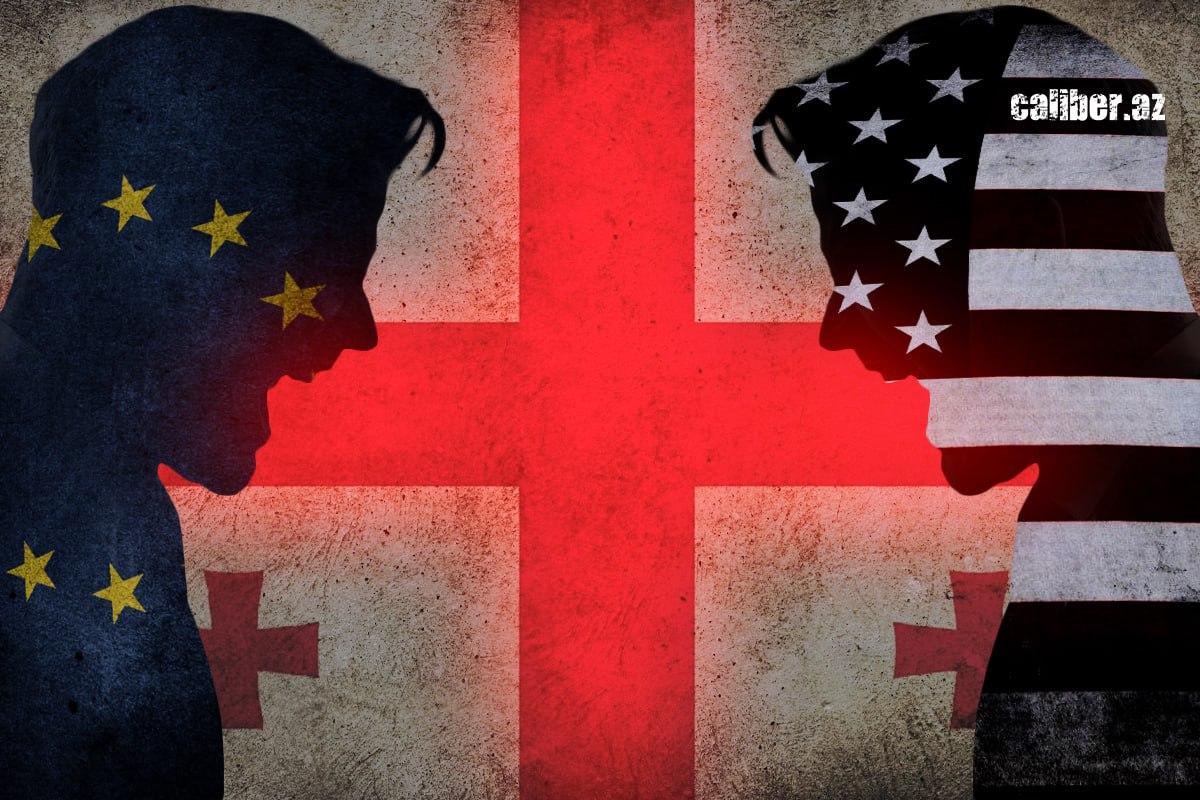
At the same time, the Speaker of the Georgian Parliament, Shalva Papuashvili, pointed out that the United States, which is imposing sanctions on his country today, completely ignored human rights violations in Georgia during the final years of Mikheil Saakashvili’s rule. "The outgoing U.S. administration was in power during the last years of Saakashvili’s presidency, when torture became particularly brutal, free media was effectively destroyed, and business extortion became part of the state system. We do not even remember, let alone sanctions, any clear stance from the then administration, which is still in power in the U.S. Today, the position of the outgoing administration on sanctions is unclear and meaningless," Papuashvili stated.
However, the reason behind such double standards from the U.S. toward Georgia is evident when considering that Washington views Georgia merely as a tool in its geopolitical strategy. Under Saakashvili, the authorities, following U.S. State Department-dictated policies, brought the situation to a war with Russia, in which Georgia received absolutely no help from the West. At that time, the country suffered a military defeat and lost 20% of its territory.
Today, the Georgian authorities are pursuing a pragmatic policy, refusing, at the behest of the U.S. and the EU, to "collide with Russia" and instead have prospects for the peaceful restoration of the country's territorial integrity. However, the U.S. and the EU have already planned to use Georgia as "geopolitical expendable material" against Russia. They have no interest in an independent policy by Georgia’s authorities that aligns with the national interests of the country. Instead, they are "forcing Georgia into submission," using blackmail against the legitimate Georgian government and imposing sanctions.
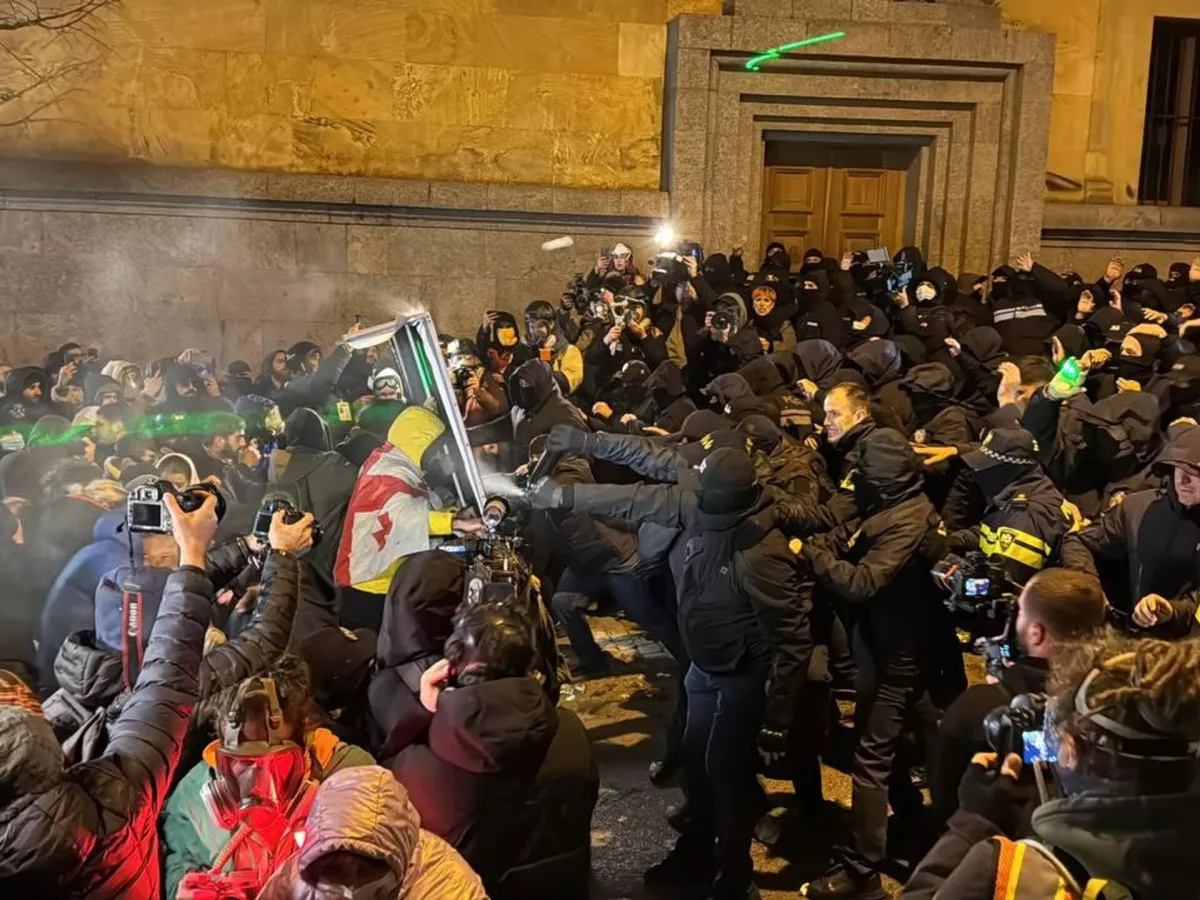
"Sanctions are a last resort, and if necessary, sanctions will be imposed. But we hope that the current government understands that the best way to avoid sanctions is to take into account the will of the Georgian people, who want Europe," stated Tobias Cremer, who arrived in Tbilisi.
This raises the question: what if sanctions and the protests orchestrated by the U.S. and the EU do not lead to a change in power in Georgia? What will the pro-Western opposition call for then? Military intervention? Rocket strikes?
The possibility of such a development cannot be underestimated. Let us recall that the U.S. military operations against Yugoslavia and Iraq began with sanctions. Today, the EU and the U.S. are clearly preparing their "operation" against Georgia and the Georgian people, and it is not certain that this will not escalate into a military intervention. The opposition propaganda claims that the U.S. and the EU, through their blatant interference in Georgia's internal affairs, are allegedly "countering Russia." The opposition also calls for unrest and violent actions against the legitimate Georgian government, demanding its overthrow based on propagandistic claims that the current Georgian government is supposedly a "puppet of Russia."
The West aims to open a "second front" against Russia in the Caucasus. If this requires first sowing chaos in Georgia, igniting a civil war, and trampling the country's sovereignty through military means—then they might be willing to pursue that course.
The rhetoric from Brussels and France toward Georgia is becoming increasingly uncompromising and militant. "Georgia has clearly become a target for attacks and manipulations, and I want to reaffirm our full support for those defending democracy and advocating for Georgia's European path. We are deeply concerned about the severe repression of young people and the troubling statements from the head of government, which signify a betrayal of the European path following the elections," said Emmanuel Macron.
But if there is an "attack" (as Macron claims), a "counterattack" against the "betrayers of the European path" is also possible. The West may well open a "second front" in the Caucasus, but initially, not against Russia, but against Georgia and the Georgian people. Especially considering that France is actively creating a "military outpost" in the South Caucasus through Armenia, which is shifting from Russia to the West.
The relatively small scale of the protests in Tbilisi on December 12 and 13, as well as in the first half of December 14, allowed the situation to pass without incidents. However, there is little doubt that in the coming days, the "pro-European opposition" will once again attempt to organize provocations and escalate to a violent confrontation with the legitimate government. This is particularly likely since opposition parties have already announced that they do not recognize the presidential election of December 14. According to the opposition, "the illegitimate parliament has no authority to elect the head of state, so the only legitimate representative of Georgia remains the current president, Zourabichvili."
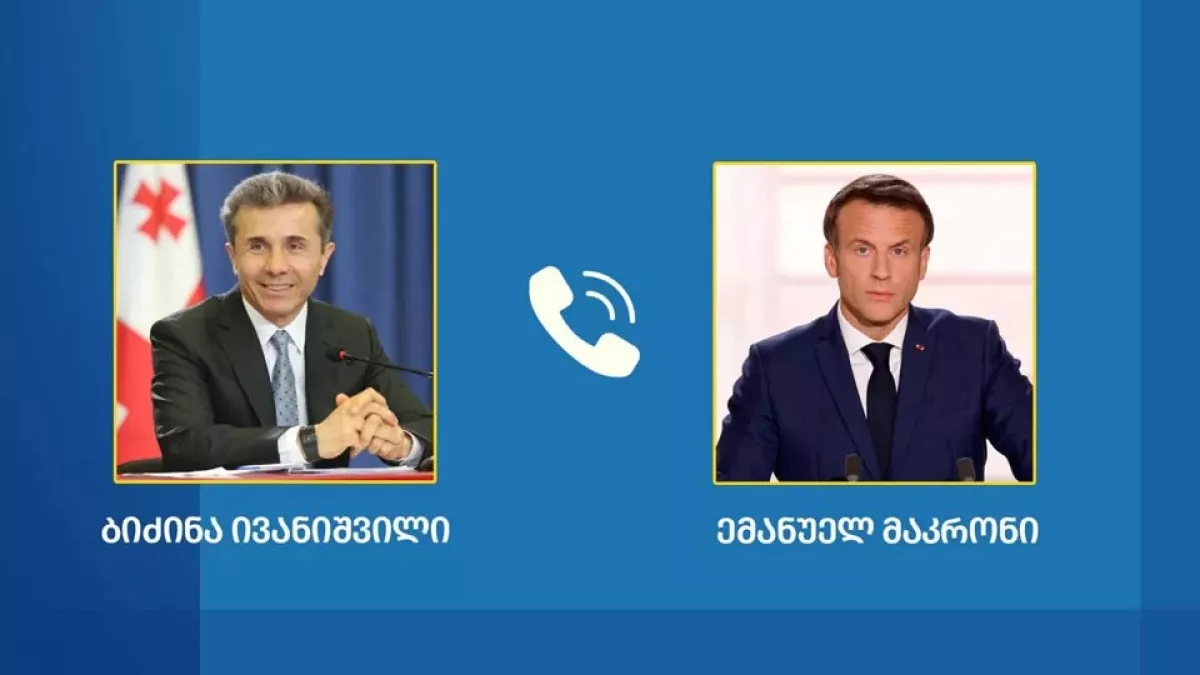
On the eve of the European Parliament's visit to Tbilisi on December 11, Georgian Dream leader Bidzina Ivanishvili received a phone call from French President Emmanuel Macron, who demanded compliance with the "Maidan" demands and the release of previously detained organizers and participants of the unrest. The full content of the conversation was not published, but it is highly likely that Macron also issued an ultimatum to the Georgian Dream leadership: to hand over all power to Salome Zourabichvili and abandon the election of a new president. It is not difficult to guess that Macron's ultimatum was rejected. This is confirmed by the statement of the chairman of the German Bundestag's Foreign Affairs Committee, Michael Roth. "President Macron's talks with oligarch Ivanishvili came obviously to nothing. For a change, a European leader could visit the pro-European Georgians to express solidarity and support. All eyes on Georgia! " Roth wrote on the social network X. Essentially, Roth was urging Macron to command and dictate in Georgia as he would in Corsica or New Caledonia, territories that remain colonies of France.
On the evening of December 13, just before the new Georgian presidential election, Macron addressed the people of Georgia in a video message, stating that "the European aspirations of the Georgian people, enshrined in the Constitution of Georgia, cannot be betrayed," thus interpreting the Constitution of another state unilaterally.
Immediately after this, another French citizen, Salome Zourabichvili, thanked Emmanuel Macron: "Mr President thank you for your support. Europe is the free choice of the Georgian people, which has given no mandate to the Georgian Dream leaders to turn away! Merci le peuple géorgien ne se laissera pas intimider!" Zourabichvili wrote on social media. This means that two French citizens have unilaterally taken it upon themselves to determine the "choice of the Georgian people."
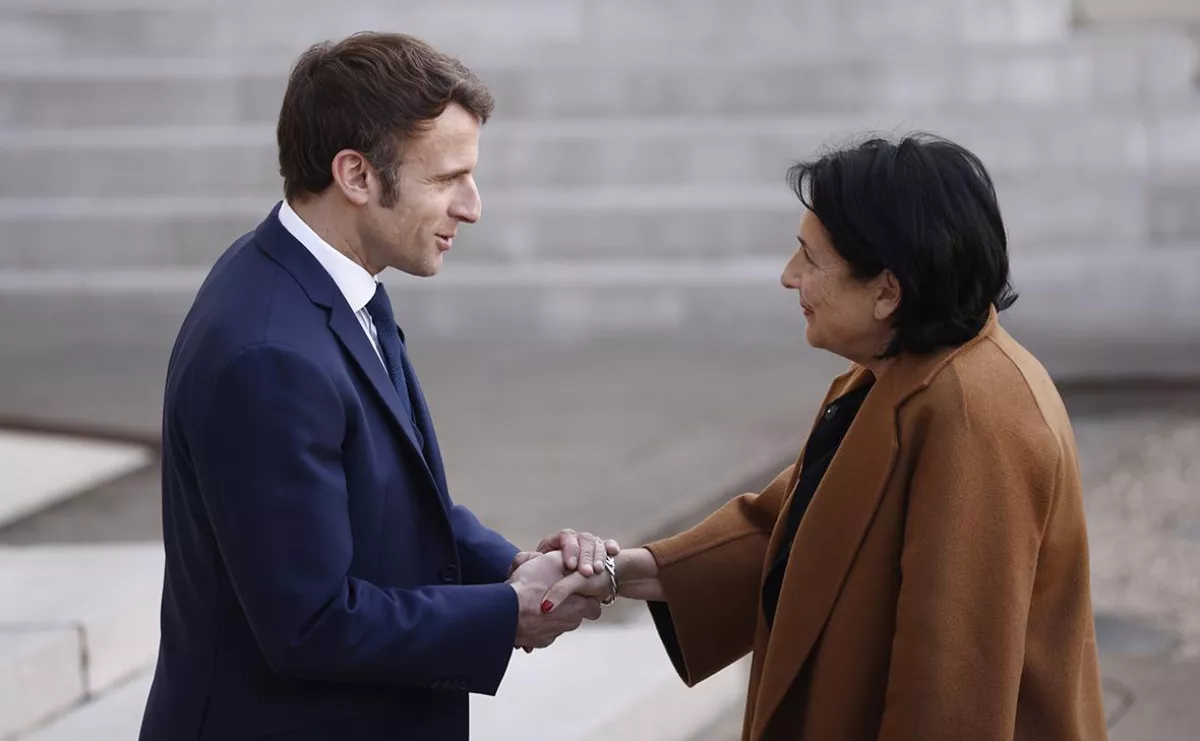
The European Parliament members who arrived in Georgia essentially reiterated Macron's ultimatum to Ivanishvili. In particular, Member of the European Parliament, Polish politician Michał Szczerba from the European People's Party, stated that according to the EU leadership, Salome Zourabichvili is "the only authority now in the state, who has full legitimacy and direct general elections, the president is the leader of this country and we have to cooperate with her to make this Georgian way to the European Union" and urging Georgian authorities to "to repeat these elections under certain conditions, and under standards, we respect in the European Union."
In other words, the new elections demanded by the EU should be held in Georgia under external control, ensuring that the EU and France's chosen candidates emerge victorious. There is little doubt that if the people of Georgia vote differently than the West would prefer, these elections would either be not recognized or annulled, as recently happened in Romania, where the results of the first round of presidential elections were canceled because the "unwanted" EU candidate came in first place.
Thus, in the coming days, Georgia will face a serious battle for its national sovereignty. Due to the cold weather and snowstorm, the opposition was unable to gather a large protest outside the parliament building on the day of the new president's election in Tbilisi. However, at any moment, the opposition, which does not recognize the legitimacy of either the new president or parliament, may attempt to provoke tensions. The organizers of the "Maidan" need bloodshed and a violent confrontation to label the legitimate government as "usurpers waging war against their own people."
If they succeed in this, a scenario of dual power could emerge in Georgia, with the support of the West for what it considers the "only legitimate" leader, Zourabichvili, and the parallel structures of power and security forces she creates. This could lead not only to civil war but also, in the case of violent suppression of the pro-Western armed uprising, to external intervention. Just as the opposition and Zourabichvili are calling on European Parliament members to come to Georgia and demand sanctions against their own country, they could also invite external forces for military intervention.
Vladimir Tskhvediani, Georgia, for Caliber.Az








